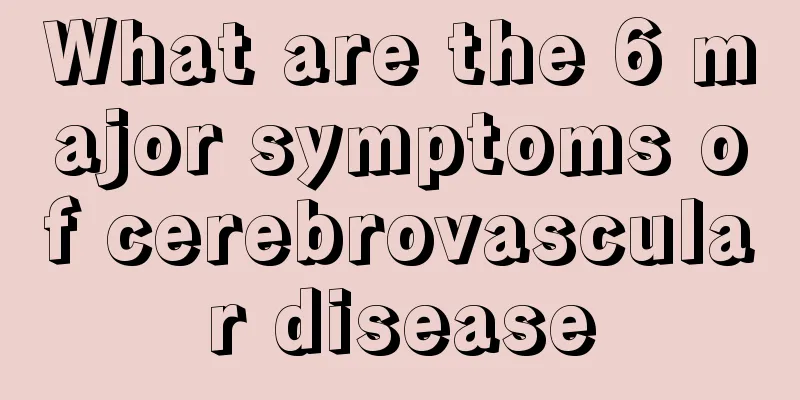What are the symptoms of degenerative osteoarthritis

|
I wonder if you have ever paid attention to degenerative osteoarthritis in your life? Patients usually experience pain after resting, which is relieved after a short movement. Sometimes there is a clicking sound during movement. If the condition is more serious, it may also be accompanied by symptoms of muscle atrophy and joint deformity. Therefore, attention should be paid to active examinations to clarify the condition and then provide correct treatment. 1. Clinical manifestations The main symptom is joint pain, which is often pain at rest. The pain occurs after rest and is relieved by a short movement. However, the pain worsens after excessive activity. Another symptom is joint stiffness, which often occurs when you wake up in the morning or after the joints have been in a certain position for a long time during the day. Examination of the affected joints may reveal joint swelling and tenderness, and a friction or "clicking" sound during movement. In severe cases, muscle atrophy and joint deformities may occur. 2. Inspection 1. Imaging examination ① X-rays show unequal or narrowed joint spaces, osteoporosis in the joints, bone hyperplasia or joint enlargement, and even joint deformation, subchondral bone sclerosis, and osteophyte formation. ②CT can clearly show different degrees of joint bone hyperplasia, calcification and loose bodies within the joint, and sometimes can also show the condition of the meniscus. 2. Laboratory examination There were no abnormal changes in the erythrocyte sedimentation rate and blood picture, and the thermal agglutination test was positive. The joint fluid is usually clear, slightly yellow and highly viscous, and the white blood cell count is usually within 1.0×10/L, mainly composed of monocytes. The mucin clots are firm. Treatment The main treatment for this disease is to reduce the weight on the joints and excessive large-scale activities to delay the progression of the disease. Obese patients should lose weight to reduce the load on their joints. When there are lesions in the lower limb joints, crutches or a cane can be used to reduce the burden on the joints. Physical therapy and appropriate exercise can maintain the range of motion of the joints. When necessary, splints, braces, and canes can be used to help control acute symptoms. Anti-inflammatory and analgesic drugs can alleviate or control symptoms, but they should be used with caution after assessing the patient's risk factors and should not be taken for a long time. Chondroprotective agents such as glucosamine sulfate have the effect of relieving symptoms and improving function, and long-term use can delay the structural progression of the disease. For advanced cases, if the patient's general condition can tolerate the surgery, artificial joint replacement is currently recognized as an effective method to eliminate pain, correct deformities, and improve function, which can greatly improve the patient's quality of life. |
<<: What are the rehabilitation guidelines for knee osteoarthritis
>>: How to exercise for hip osteoarthritis
Recommend
How to treat gastric distension
How to treat gastric epigastric disease? This is ...
What soup is best for fractures
What soup is best for fractures? For patients wit...
How much weight can you lose by fasting for seven days
In fact, many friends cannot survive the seven-da...
What is a clavicle chain?
Clavicle chains are quite popular and loved nowad...
The correct way to massage your eyes
It is said that the eyes are the windows to the s...
What to do about blackheads on nose during adolescence?
People in adolescence usually have more active en...
Is the water pad harmful to the body?
In the hot summer, due to the extremely high temp...
Where do liver spots appear?
Liver spots are actually what we call chloasma, w...
What is the use of snow water in winter
The snow water in winter can help lower cholester...
Sudden chest tightness and shortness of breath at the age of 20
We should often see chest tightness in some elder...
Is brain cancer contagious?
Brain cancer refers to malignant tumors in the br...
What diseases does endodontics treat?
In the past, people would usually go to the denti...
How to improve the survival rate of bile duct cancer
How to improve the survival rate of bile duct can...
Things you need to know to prevent bile duct cancer
Because most bile duct cancers are already in the...
What are the methods for restoring vision?
Eyes are our way of seeing the outside world. If ...









